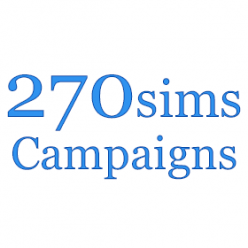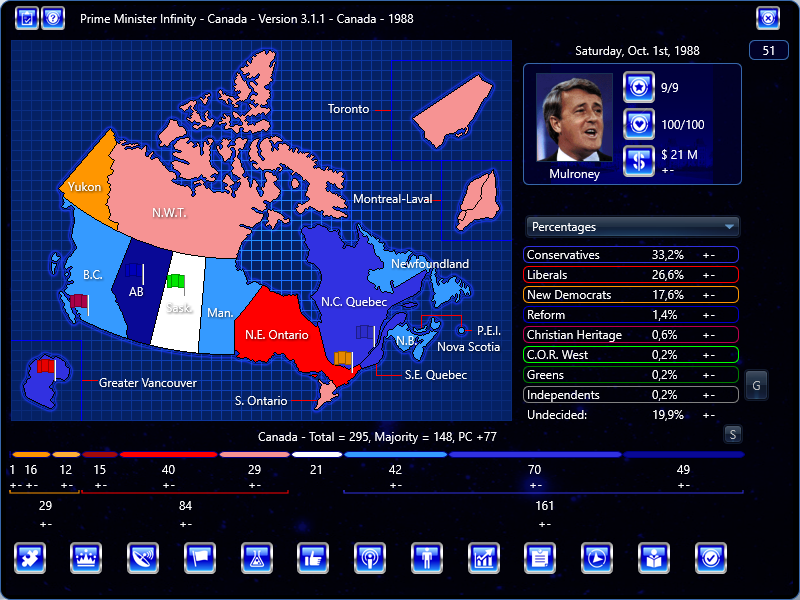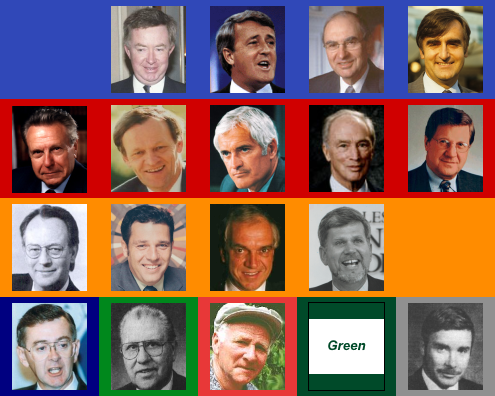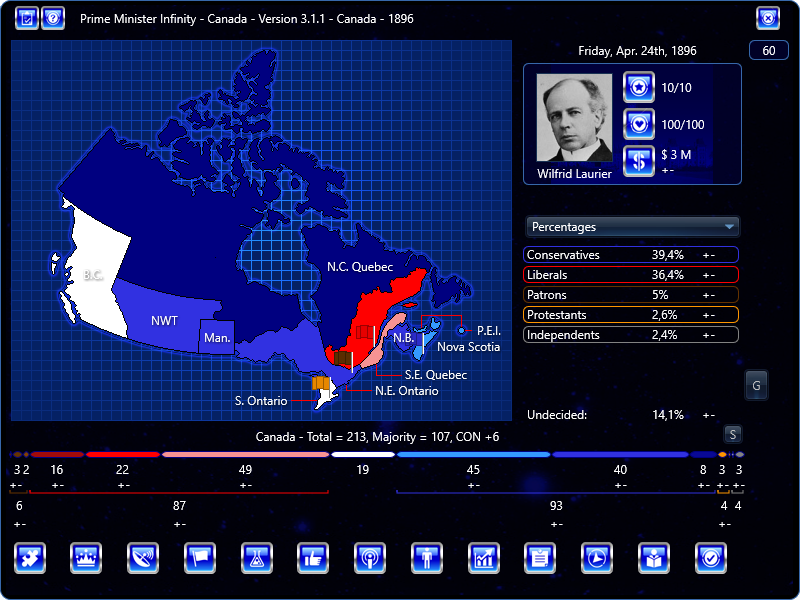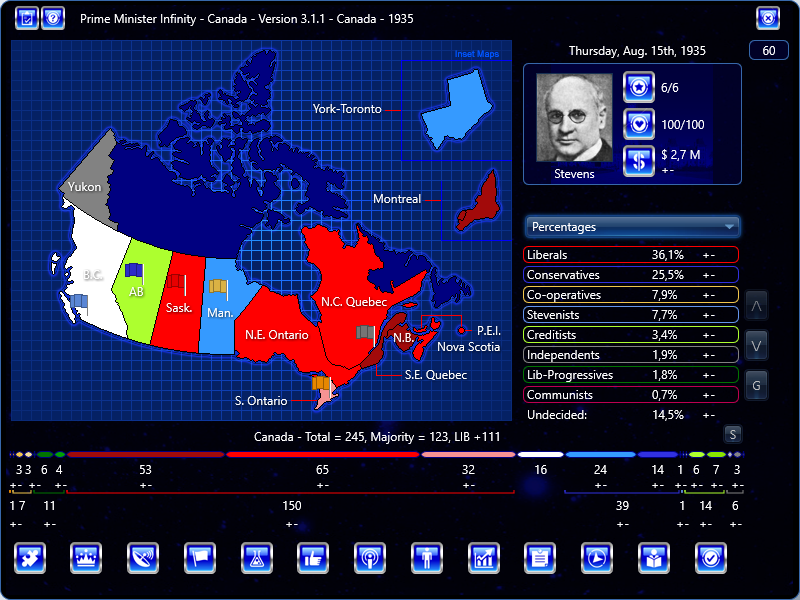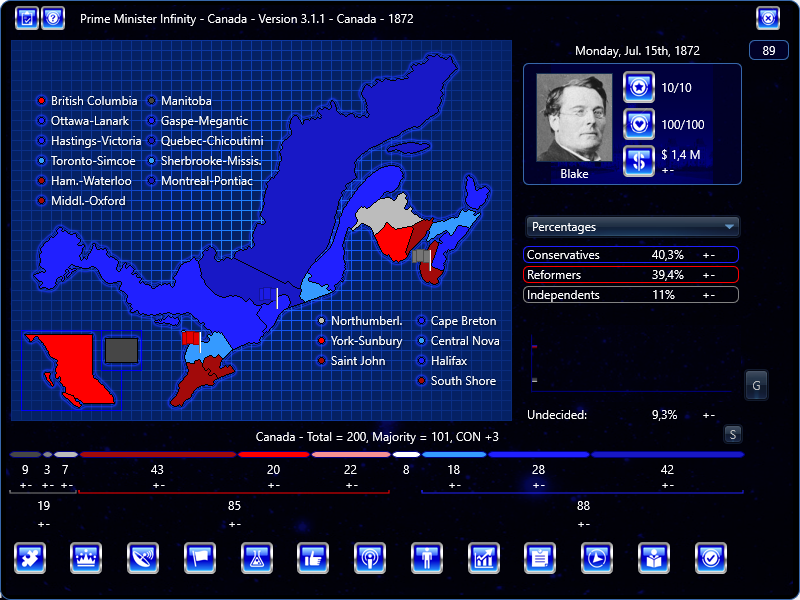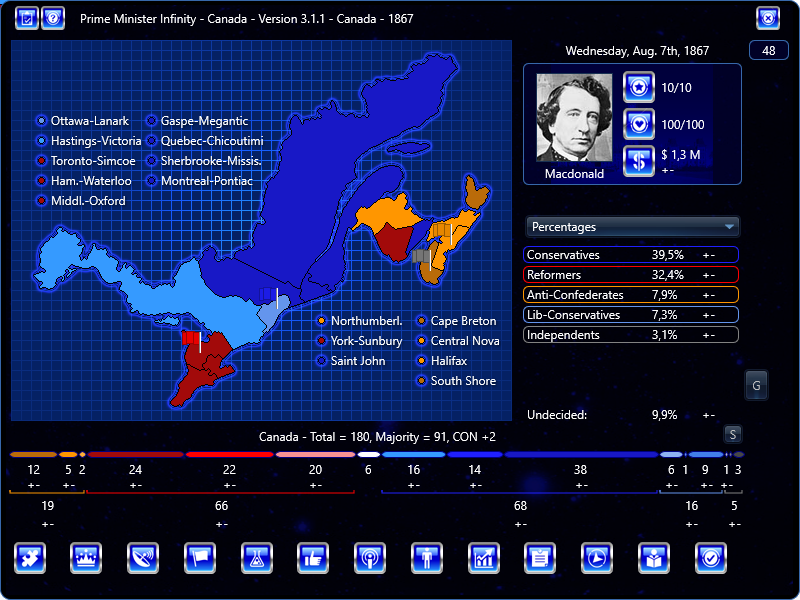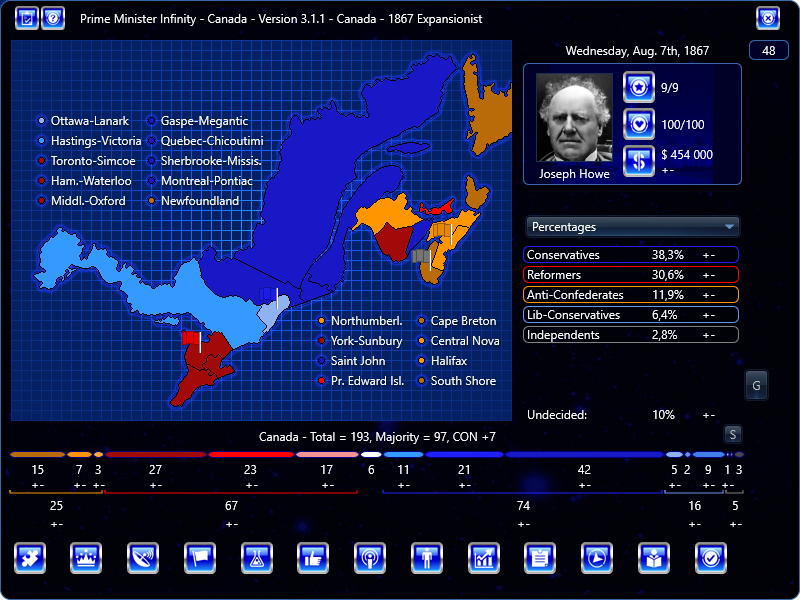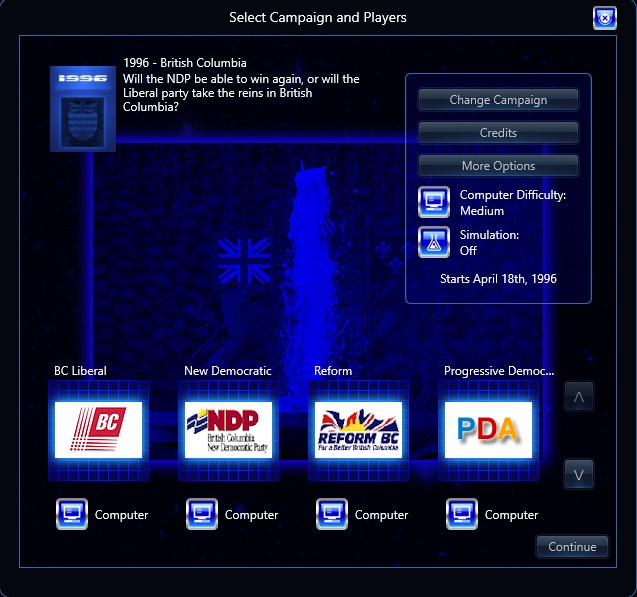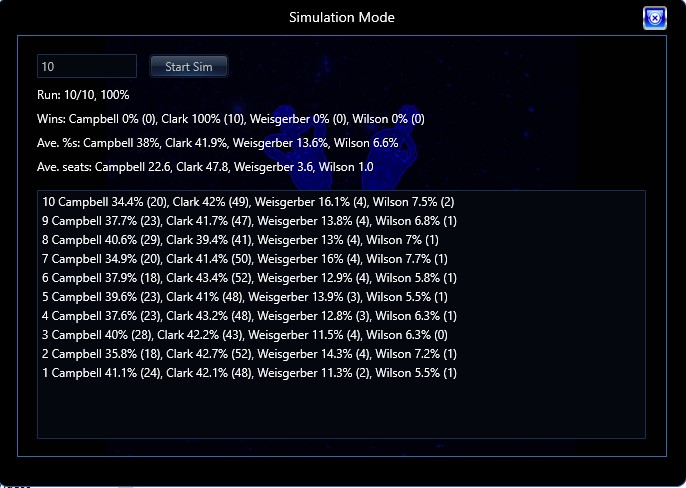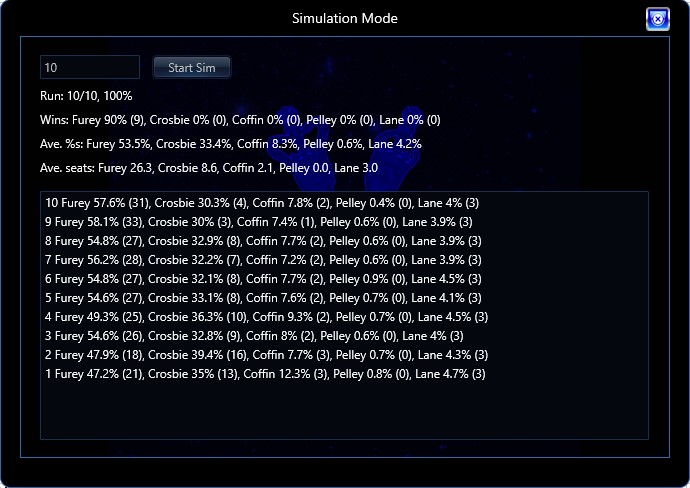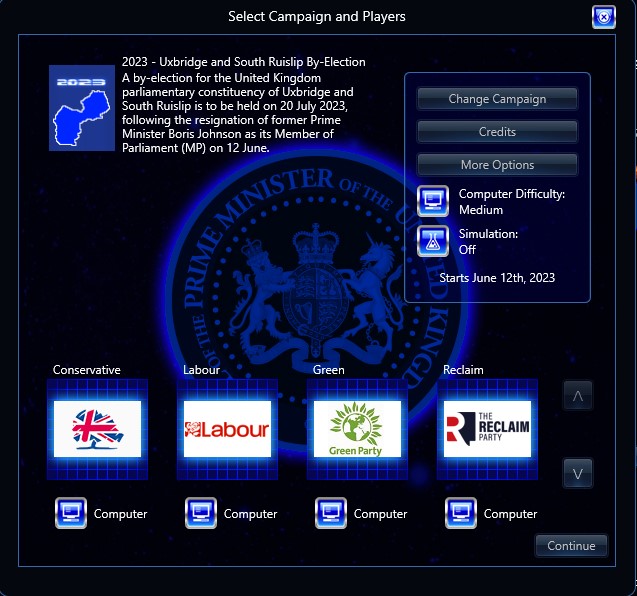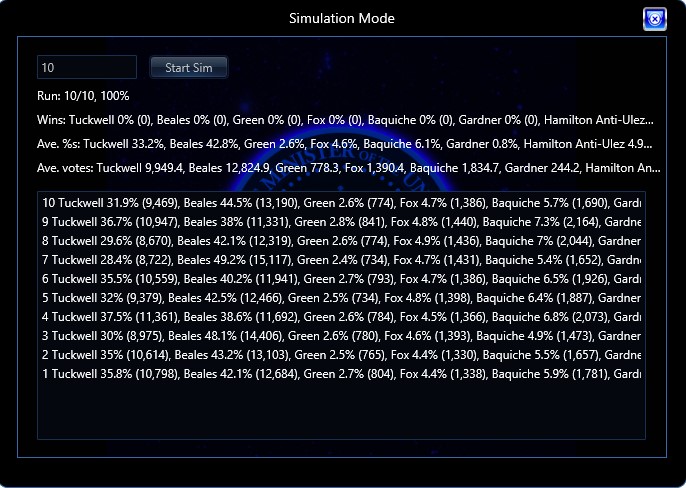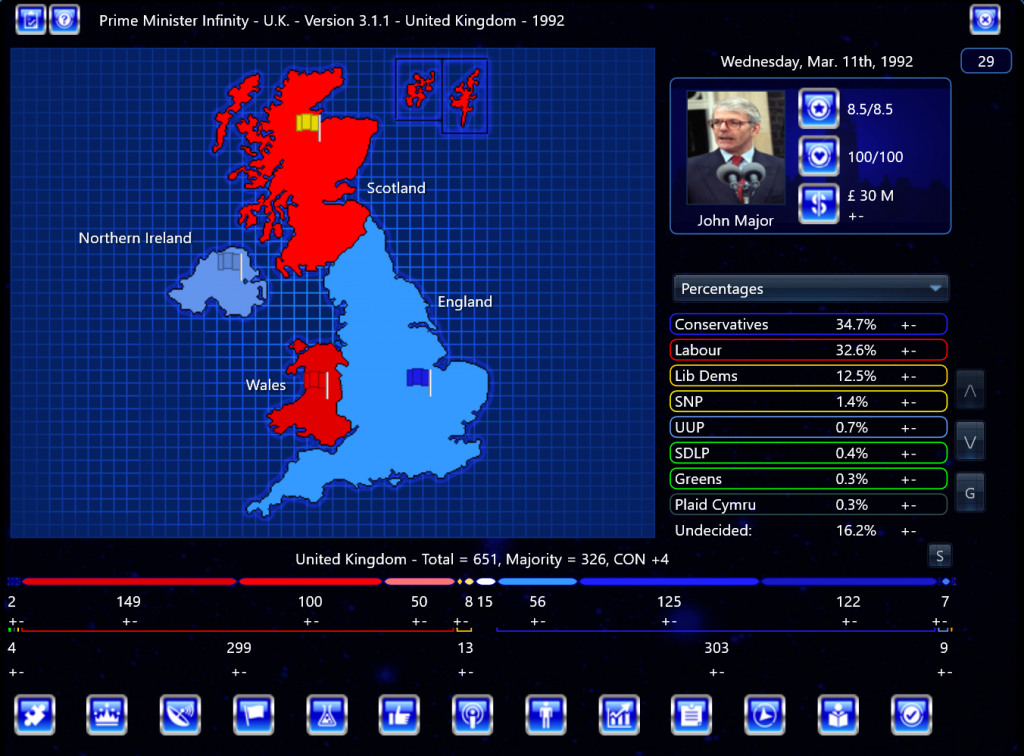Never before has Canada so fragile. Unprecented casualties in the Great War forced Borden to pass the conscription through Parliament. The decision of the English Canada sharply alienated the French, who were offended by the long-standing suppresion outside Quebec.
The Coalition organised a great vote rigging, simultaneously expanding women’s rights and taking away alien’s one. Laurier Liberals have accumulated a loud anti-conscription voice.
The dirtiest, most intolerant and most vicious campaign is ahead. Election day will become Doomsday.
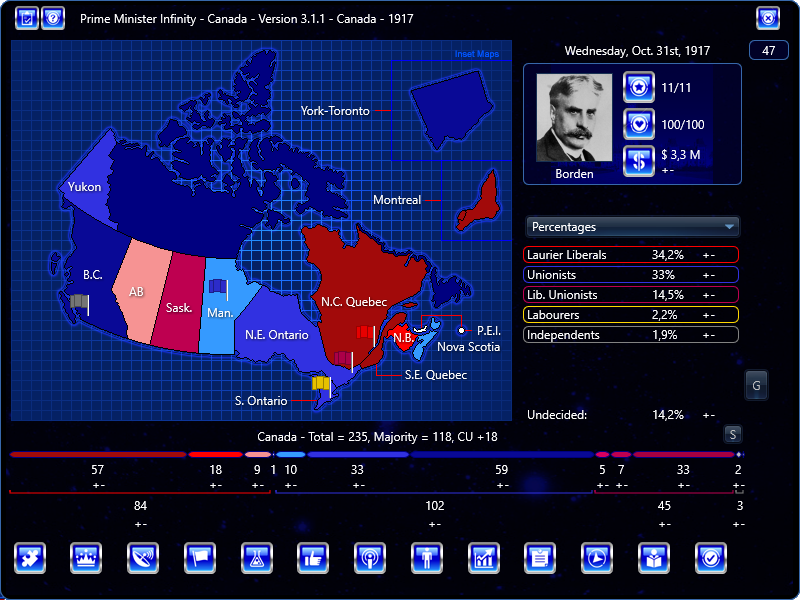
This campaign has three different variations that you can play:
- Separate Unionist: Conservative and Liberal Unionists nominate separately, but in coalition. Here you can play for Unionist candidates who have retired from competition;
- United Unionist: Historically traditional scenario of Unionists vs Laurier Liberals;
- No Union (AH): Coalition talks fail, and straight-party Conservatives and Liberals run separately. An independent nationalist and anti-conscription movement led by Henri Bourassa rises in Quebec.
For more information please contact the background folder.
